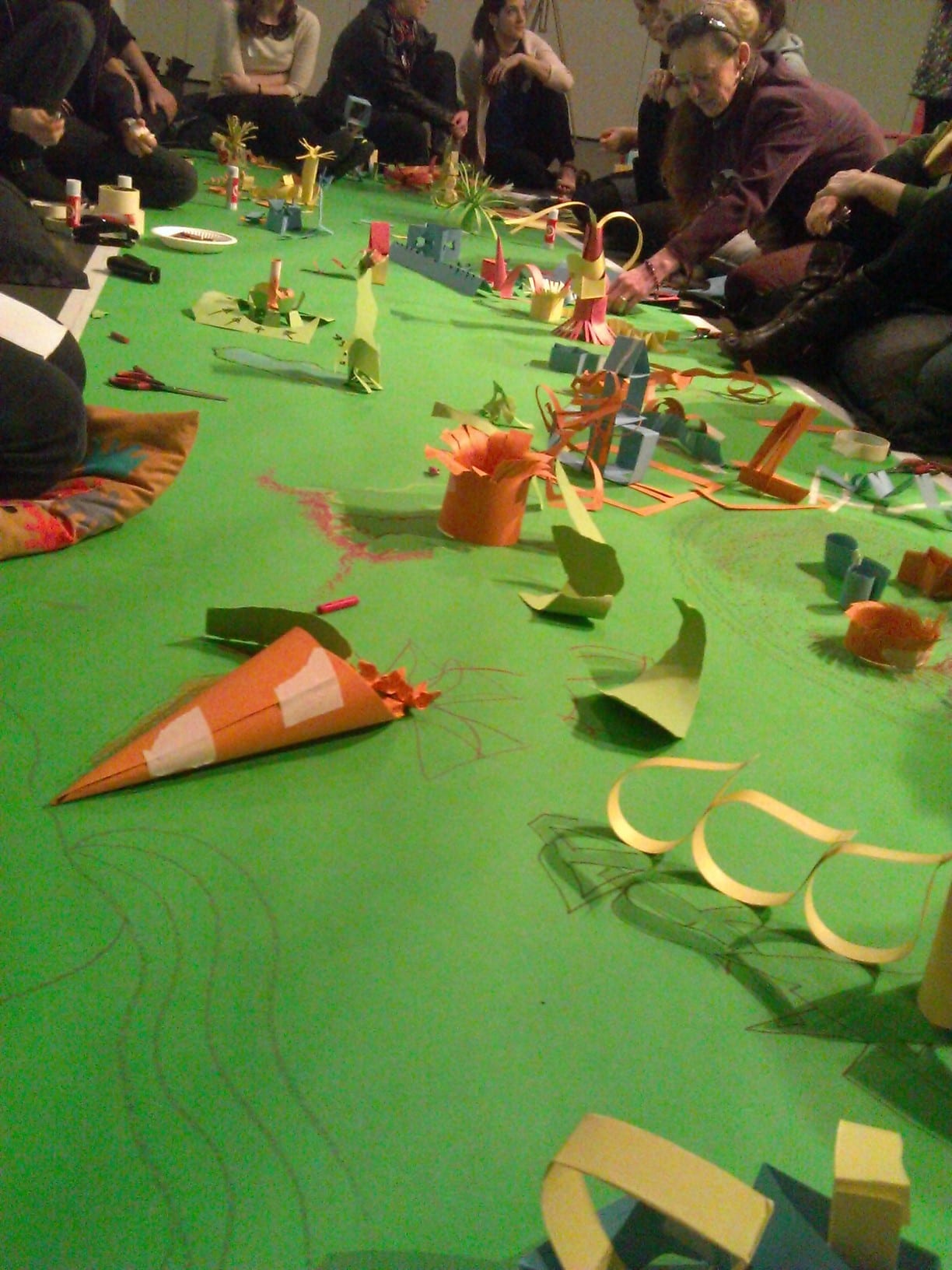Research into Good with two-year olds revealed a preference for dispositions over qualifications and we discussed possible definitions for child-led practice

Posted: 10/03/2022
Mini Conference: Creative
Practice and Collaboration in early years
Organised by
CultureShift in partnership with the South East England Bridge Artswork
A
stones throw away from Eastbourne’s beach at Towner gallery, our afternoon
began with a keynote from Jan Georgeson and Verity Campbell-Barr from Plymouth Institute of
Education. Their recent research into Good
with two-year olds revealed a preference for dispositions over
qualifications in the early years workforce and we discussed possible definitions
for child-led practice.
The
research funded by TACTYC examined Staff
perspectives on working with two-year olds: preparation, support and working
together(attached). The government has introduced funding for the most
disadvantaged of this age group to get free childcare, which is now at 40% in
the UK. This is provided by a mixed economy of settings from childminders to
private nurseries to school provision. The researchers spoke to a range of
providers across the UK through surveys, key informants and 11 case studies.
There
were some mixed feelings towards the current qualifications- with managers
wanting a ‘good level 3 practitioner’
but staff not always feeling adequately prepared by the qualification. Personal
dispositions were found to be highly valued and not necessarily provided by the
qualifications. Dispositions included: patience, empathy, passion, being
emotionally accessible, love and reflection. Confidence came up as another
skill the workforce need. How can these be more incorporated into the training
and understanding of working with the early years?
During
the breakout sessions, downstairs in a large room a long roll of green paper
was taped across the floor. Our hosts, Octopus
Inc, invited us to join in and create shapes: play. In no time at all we
had created our own landscape- a whole village just by repeating shapes with
coloured paper, glue and tape. It was suggested we could incorporate found objects
from the garden or let insects and hamsters loose on our new obstacle
course. Octopus Inc staff play together-
it is important to their work. They engage parents with play in their workshops
and develop simple and effective activities with low-fi, accessible materials.
These creative activities practice some of the emotional dispositions mentioned
in the study: children and parents are gently encouraged and involved. What is
the greater role the arts sector can have in supporting work with 2 year olds?
In the
study, professional development was highly valued by staff and they frequently
wished for more opportunties in the future. In The Rainbow Collectives 2014 audit, we found
confidence mentioned as a barrier for some staff in providing creative arts
activities: CPD can address this. As well as lifelong learning opportunities,
the managers own network and a wider ethos of the setting were found to be
important by the study.
The
question of quality in early years, as in the arts, is a complex one, which the
study acknowledges ‘…it is a complex
interplay between dispositions, qualifications and experience’. With
practitioners often sandwiched between policy, setting, family and the
children, it can be difficult when different perspectives don’t fit together.
The clash between school readiness and under 5s pedagogy was raised as a case
in point. Training a child to sit, listen and behave in a school environment is
different from that of a child-led early years setting. Conversely, one nursery
head-teacher reported at primary school where many of her children transfer,
her children are often the most school ready. At her setting she encourages a
‘free flowing play’ which she defined as allowing children to transfer learning
to where it made sense to them. If they wanted to take play-doh, put it in a
pan or cover it in mud in the garden- that is supported. She speculated that as
her children had already had the opportunity to make mess, pour water, play creatively
and see what happens: they are ready to sit and listen in school.
The
idea of ‘free-flowing’ or ‘child-led’ is an important element of under 5s
learning. During the mini conference clarification of the term seemed to imply
3 possible meanings:
1.
Develop
the independence of the child
2.
Develop
the child’s voice
3.
Plan
around the child’s interest
How
can the school ready agenda work with a child-led ethos? Some practitioners
spoke of the concern that two-year olds were being pre-pre-schooled rather than
enjoying being two.
Creativity
and the arts can not only support settings in nuturing these positive
dispositions with staff, arts practice can provide more ideas and resources to
support child-led practice and enhance the experience of being two. The request
for CPD, and the importance of the ethos of a setting and a managers network,
suggests initiatives like those encouraged in the South East by Culture Shift and Artswork and The Rainbow
Collective here in Lewisham have an important role to play in supporting
staff and developing ideas around ‘quality’ early years provision.
Whats
next? Georgeson and Campbell-barr are working with CultureShift as part of the
Open Sesame programme to study Working
Creatively from Birth to Two. At LEAN we are actively applying for funding
to continue running networking, training and sharing events as part of The
Rainbow Collective. In the meantime we have an event in May and continue to
share information, news and resources through our web hub, twitter and ~
Facebook Group.
by Elizabeth Murton, Early Years Coordinator and Membership Development Officer at LEAN and artist.
